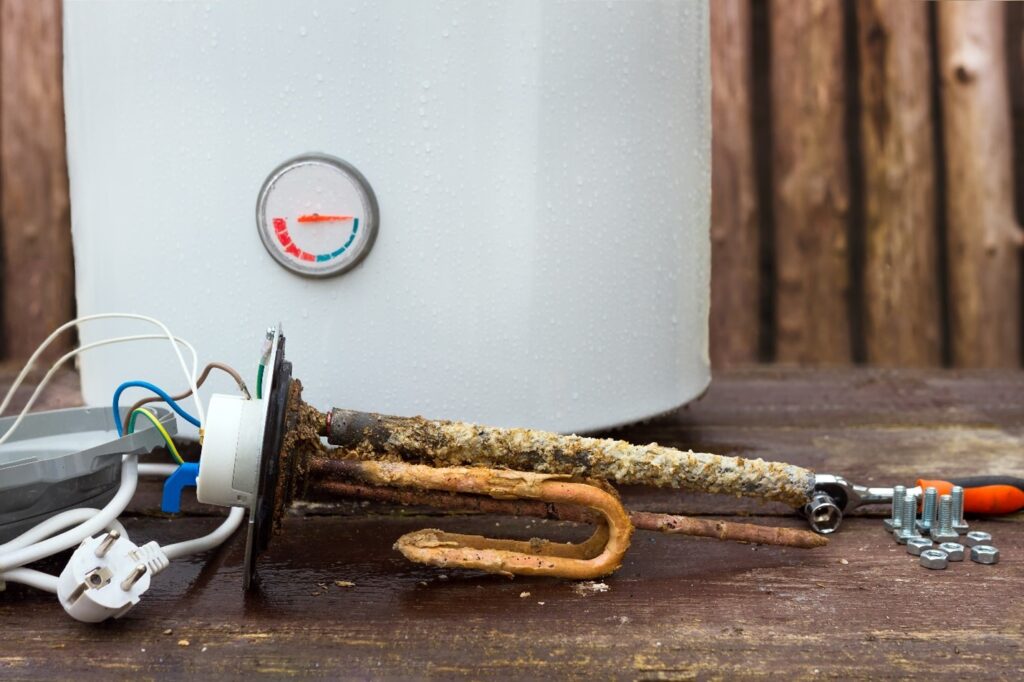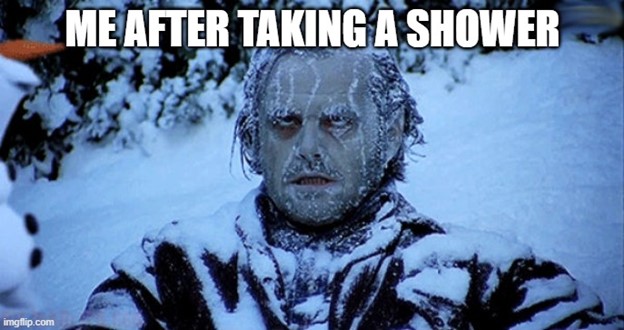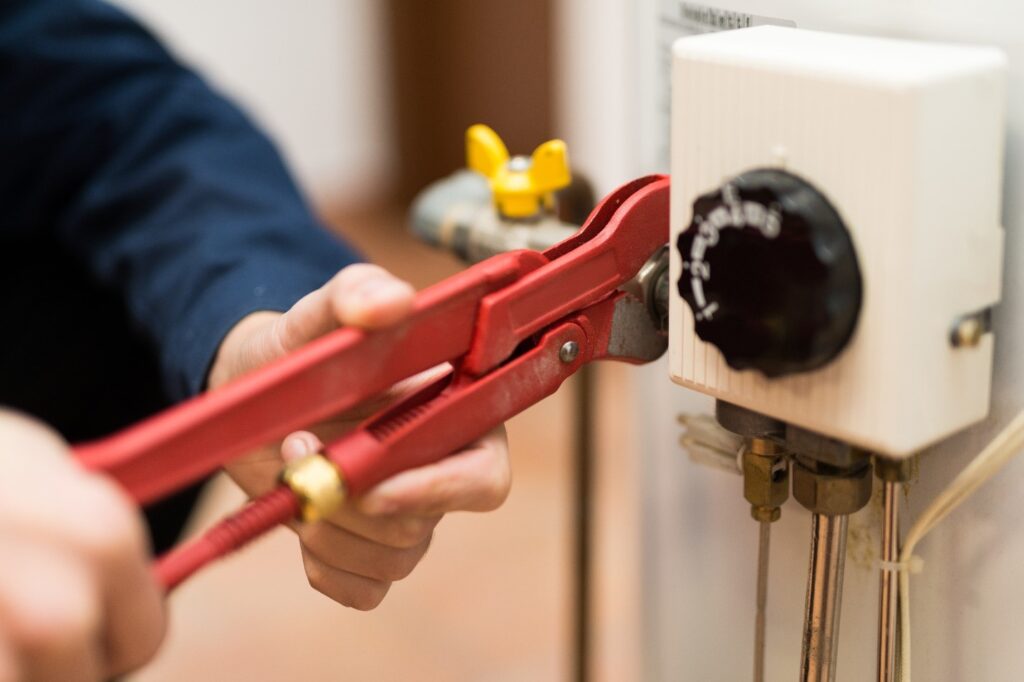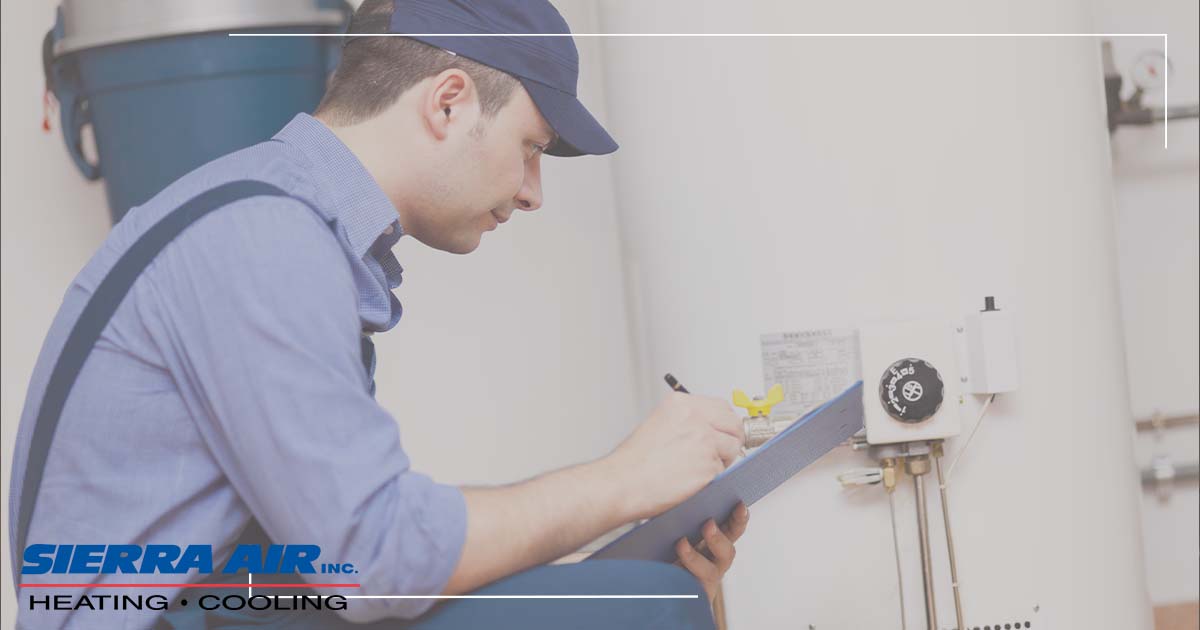A water heater is a vital appliance in any home, providing hot water for showers, washing dishes or clothes, and heating your home during the colder months. But just like all appliances, water heaters will eventually reach the end of their life.
But how do you know when to replace your water heater? Well, there are a few telltale signs to watch for.
Older Water Heater
Old water heaters expire for a variety of reasons. Over time, the constant heating and cooling of the water inside the tank cause metal fatigue, which can lead to cracks or warping in the tank walls. This can ultimately cause leaks and flooding in the surrounding area.
Another common issue with older water heaters is corrosion. The constant exposure to hot water and minerals can cause corrosion and rust on the tank and internal components, including the anode rod, which is designed to protect the metal inside the tank from rusting.

For this reason, water heaters only typically last 8-12 years. If yours is older than that, consider replacing it before it fails. You’ll usually be able to find the manufacturer’s recommendation for a replacement date on the water heater itself.
Not Heating Normally
Water heaters are, by design, supposed to heat water quickly and consistently. However, if yours is not heating as it usually does, there might be a more significant issue that must be addressed. One of the common reasons why a water heater stops heating normally is due to sediment buildup inside the tank.

If you find that the root cause of the issue is sediment buildup, flushing your water heater can help remove the buildup and restore its heating capacity. On the other hand, if the problem is due to a faulty heating element, replacing it with a new one may be the best course of action.
Constant Repairs
While a broken water heater can be frustrating, it’s normal for it to need occasional repairs throughout its lifespan. However, if you call the repairman every few months, it may be a sign that you’re experiencing more than just minor issues.

Frequent breakdowns indicate that your water heater is reaching the end of its lifespan, and it is best to consider installing a new water heater altogether. Investing in a new one will save you the cost of regular repairs that aren’t insignificant. Besides, a new water heater will operate more efficiently and use less energy, which will only help lower your utility bills.
Noise and Leaks
If you hear unusual noises like popping or banging from your water heater, it’s time to take action. These noises are often caused by mineral buildup or overheating. Sediment build ups eventually harden and start making a popping or cracking noise due to the increased pressure they create.
Overheating, on the other hand, occurs when the temperature of the water gets too high, causing it to boil and produce steam. In addition to unusual noises, if you start noticing water pooling around your water heater, this isn’t normal.
Different things, such as rust, a crack in the tank, or worn-out fittings, can cause leaks. Rust buildup is common in older water heaters and can cause the tank to weaken and eventually crack. If the tank has a crack, water will start seeping out and eventually cause the heater to fail.
The fittings on your water heater are used to connect it to other pipes in your home, and they can wear out over time through frequent use or exposure to hard water. If the fittings start to fail, they will also cause water to leak out of the heater, damaging the surrounding area.
Water Changes
Apart from rusty water, you can also encounter several other water-related issues with a faulty heater. One common problem is hard water, which is when the water contains high levels of minerals like calcium and magnesium. This can result in scaling appearing on your fixtures and appliances, reduced water pressure, and even make it harder to clean clothes and dishes.
Foul-smelling water is another giveaway that your water heater may be failing. This can be caused by bacteria or algae growth in your pipes or water supply or by high chlorine levels or other chemicals in your water. In some cases, a water filtration system may be necessary to remove these contaminants and improve the taste and odor of your water. However, in other cases, you may need to replace your water heater altogether.


